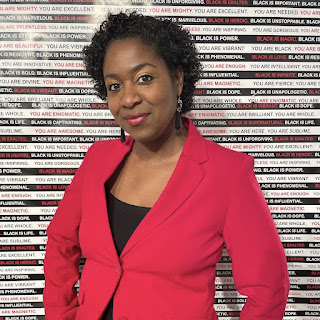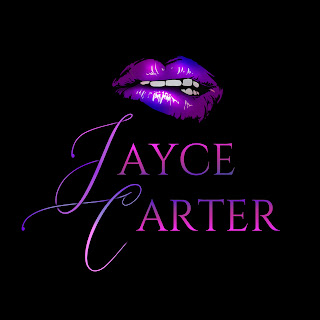This post is part of a virtual book tour organized by
Goddess Fish Promotions. Jo St Leon will be awarding a $15 Amazon or Barnes and Noble GC to a randomly drawn winner via rafflecopter during the tour. Click on the tour banner to see the other stops on the tour.
Welcome to It's Raining Books. What or who inspired you to start writing?
I was a very shy, geeky teenager. I read voraciously, and I played the viola. I didn’t really speak very much at all. So my main inspiration to write came from Virginia Woolf—her essays, rather than her novels. I just loved her voice—her turn of phrase, the rhythm of her words, and the incredible sense of her character that shone through them. I wanted to be able to create a voice like that, both on and off the page.
What elements are necessary components for this genre?
Well, it’s a bit of a hotchpotch genre: a bit of memoir, a bit of personal development, a bit of health and wellness, even a bit of YA and coming-of-age, so this question isn’t easy. I would say honesty, a willingness to dig deep, and the capacity to laugh at myself.
How did you come up with the idea for your book?
I didn’t originally set out to write a book. I started by writing isolated articles as they occurred to me. I had looked for a book like mine when I was first diagnosed, but couldn’t find one (although I’m sure there was one somewhere). I found lots of books that told me what to do (confusingly, all their recommendations were different, and often contradictory), but none that just sat with me and shared the feelings. So after writing a couple of articles it occurred to me that I was writing the book I wanted to read.
What expertise did you bring to your writing?
I was writing about personal experiences and personal development. When I was living in London and working as an orchestral musician, it was a 7-day-a-week job. I think I suffered a bit of burnout, so I retrained as a counsellor and life-coach, and after qualifying, I worked in both these fields for a couple of years before returning to music. This helped me interpret my experience of living with cancer, and confront the fears. In the book I refer to the Johari Window - a tool for helping to discover your authentic self that I learned at Counselling College. This theme of openness and authenticity underlies the whole book.
What would you want your readers to know about you that might not be in your bio?
I have a completely irrational fear of birds. Even dead ones. I have a talent for derailing my best intentions, and if I allow myself, I can be possibly the laziest person on the planet.
As far as your writing goes, what are your future plans?
My second book is well underway. It’s completely different. It’s working title is Conversations with Robin Wilson. Robin is probably Australia’s foremost violin pedagogue—he has an astonishing number of truly outstanding students. This book is about his earliest musical experiences, his training, his pedagogy and the philosophy behind it, and his ideas about where music sits today in a world ravaged by climate change, war and the pandemic. I also have a couple of creative nonfiction journals I’d love to appear in, and I have a long-cherished ambition to write crime fiction.
Can you give us a sneak peek into the book?
My favourite piece is The Hair Correspondence. I changed drug, and began to lose my hair. I shaved it all off and had a turban-shopping spree. A friend asked me what my hair meant to me, so I wrote a letter to it to try and find out. Then my hair wrote back, and it turned into a correspondence that was incredibly fun to write.
Do you belong to a critique group? If so, how does this help or hinder your writing?
I do. We call ourselves Pottering Writers (we meet at my house in Pottery Rd) and we all met at a writing workshop run by novelist Rosie Dub. We got on so well we decided to meet monthly. Rosie loved the idea, and comes whenever she can. We are very privileged to have such wise counsel in our group, and all of us have learned and developed as a result. This was a couple of years ago. Now, everybody contributes, and we only occasionally defer to Rosie. They have become friends, and their feedback always helps. Sometimes it has totally changed the course of a piece of writing.
When did you first decide to submit your work? Please tell us what or who encouraged you to take this big step?
I enrolled myself in a memoir writing course run by Oxford University—I call it their outpatients’ department. The final piece of work I submitted for the course was The Diagnosis. The tutor loved it, so I submitted it for a memoir competition. It won second prize, and I was beyond thrilled. It was the first thing that made me believe my voice had something to contribute.
What is the best and worst advice you ever received (regarding writing or publishing)?
The best advice I ever received was to NEVER submit a first draft. Work matures in a drawer, and when I revisit it it never fails to reveal its flaws. The worst was from my primary school English teachers who instilled in me that the basic rules of grammar should never, ever be broken—they were cast in stone. I’m very grateful to these teachers for teaching me grammar, but there are certainly times—not too many—when breaking them is powerful.
Do you outline your books or just start writing?
A bit of both. I have a vague idea of what needs to go in, but it develops organically. I have never actually written an outline—I have a profound resistance to that, although I know it works beautifully for some.
How do you maintain your creativity?
With difficulty sometimes. It comes in waves—there are times when the words are scrambling over each other to get on the page, and times when the page remains stubbornly blank. Did I mention that I’m lazy? Too much inactivity doesn’t sit well with me though, so I have a couple of go-to solutions. One is morning pages—I’m a bit erratic with them, but when I do them consistently, magic happens. Then there is journalism—a concert review or profile (with accompanying deadline) can get the words flowing. If all else fails I put the computer away and go swimming.
Anything else you might want to add?
Well, I’ve probably been boring you for quite long enough, but there is just one more thing. I find the process of writing totally absorbing. Hours flash by in an instant, meals get forgotten (I know, amazing much?), friends get ignored. It’s this immersion that lets me know I’m on the right path.
The Light in the Darkness is a must-have companion for anyone living with a serious illness, or caring for a loved one with such an illness.
With this collection of reflections and personal essays, Jo St Leon shares her experiences, her darkest moments and her greatest joys. She tells of the journey from fear and denial to acceptance and a determination to live her best life. She shares her deepest thoughts and feelings, always with her characteristic blend of wry humour and wisdom.
The Light in the Darkness is the book Jo wishes she could have found when she first received her cancer diagnosis.
Read an Excerpt
Cancer is supposed to change everything—sufferers are supposed to devote their lives to their condition, and thanks to both their illness and their treatment, they are supposed to feel terrible. This has not been my experience at all. Since diagnosis I have felt progressively better apart from one serious, slightly alarming episode. Much of the time I don’t actually feel ill at all. For now, I am contented and have a good quality of life. Friends remind me that in the eleven years before I was diagnosed, I really did suffer—but somehow it feels as though if I could put up with it and carry on working it can’t have been that bad.
Cancer is not a competition, and one person’s experience does not invalidate another’s. What is important is not comparison but sharing discoveries and learning. I have tried in these pages to become a friend to those who are walking a similarly scary path. And cancer is always scary.
Regardless of whether your prognosis is terminal or curable, you will have to carve out a new normal for yourself. Trying to carry on exactly as usual, as I did, masking fear with humour and trivialising the concern of others, is a form of denial. After all, it was some form of the old normal that helped get us into this mess.
Cancer is shit. Always. But it does bring blessings in its shitty wake. If you are reading this book, you likely have cancer yourself or have someone close to you who does. By sharing my path with you, I hope you might occasionally say, ‘Oh yes!’ or ‘Oh, that really is a thing!’ Although my level of well-being is mostly good, I have dealt with all the fears that come with more ‘normal’ cancers—the fears of death, of what will happen if I can’t work, or look after myself, or take care of my cats. These fears are very real and can haunt a person’s waking and sleeping hours. I must remind myself sometimes that Sézary is by no means a fraudulent or insignificant cancer; there will likely be suffering aplenty in my future. My temporary status as a medical miracle does not rob me of my voice.
This is not a How to Overcome Cancer book. There are so many of them out there written by people who are way more knowledgeable than I. I have great faith in my medical professionals, but I don’t leave it all to them. I need to take some responsibility for my own wellbeing. At the outset, I experimented with many things, and I have learned that one person cannot possibly do them all. Self-care is important, but for me it was and is important to maintain some semblance of a quality life as well. Whatever choices I have made in this regard are mine alone. I am not recommending or prescribing them. Everyone’s choices will be different.
About the Author:Jo St Leon is a musician and writer living in Hobart, Tasmania. Receiving a cancer diagnosis in 2016 prompted her to transition from being a full-time musician who loved to write to being a full-time writer who loves to sometimes play the viola. She shares her house with two very pampered felines. She loves reading, cooking, swimming and yoga.
Connect with Jo St. Leon
WEBSITE
https://jostleon.com/
FACEBOOK
https://www.facebook.com/Jo-St-Leon-Writer-2194393090779883
LINKEDIN
https://www.linkedin.com/in/jo-st-Leon-351001211/
GOODREADS
https://www.goodreads.com/book/show/59571484-the-light-in-the-darkness
Buy The Light in the Darkness
AMAZON.COM
https://amazon.com/dp/0228860806
AMAZON AUS
https://amazon.com.au/dp/0228860806
AMAZON.CA
https://amazon.ca/dp/0228860806
INDIGO CHAPTERS
https://www.chapters.indigo.ca/en-ca/books/the-light-in-the-darkness/9780228860822-item.html
BARNES & NOBLE
https://www.barnesandnoble.com/w/the-light-in-the-darkness-jo-st-leon/1140053696
BOOK DEPOSITORY
https://www.bookdepository.com/The-Light-in-the-Darkness-Jo-St-Leon-Garth-ORafferty-Gemma-Black/9780228860808
SMASHWORDS
https://www.smashwords.com/books/view/1100976
a Rafflecopter giveaway




















